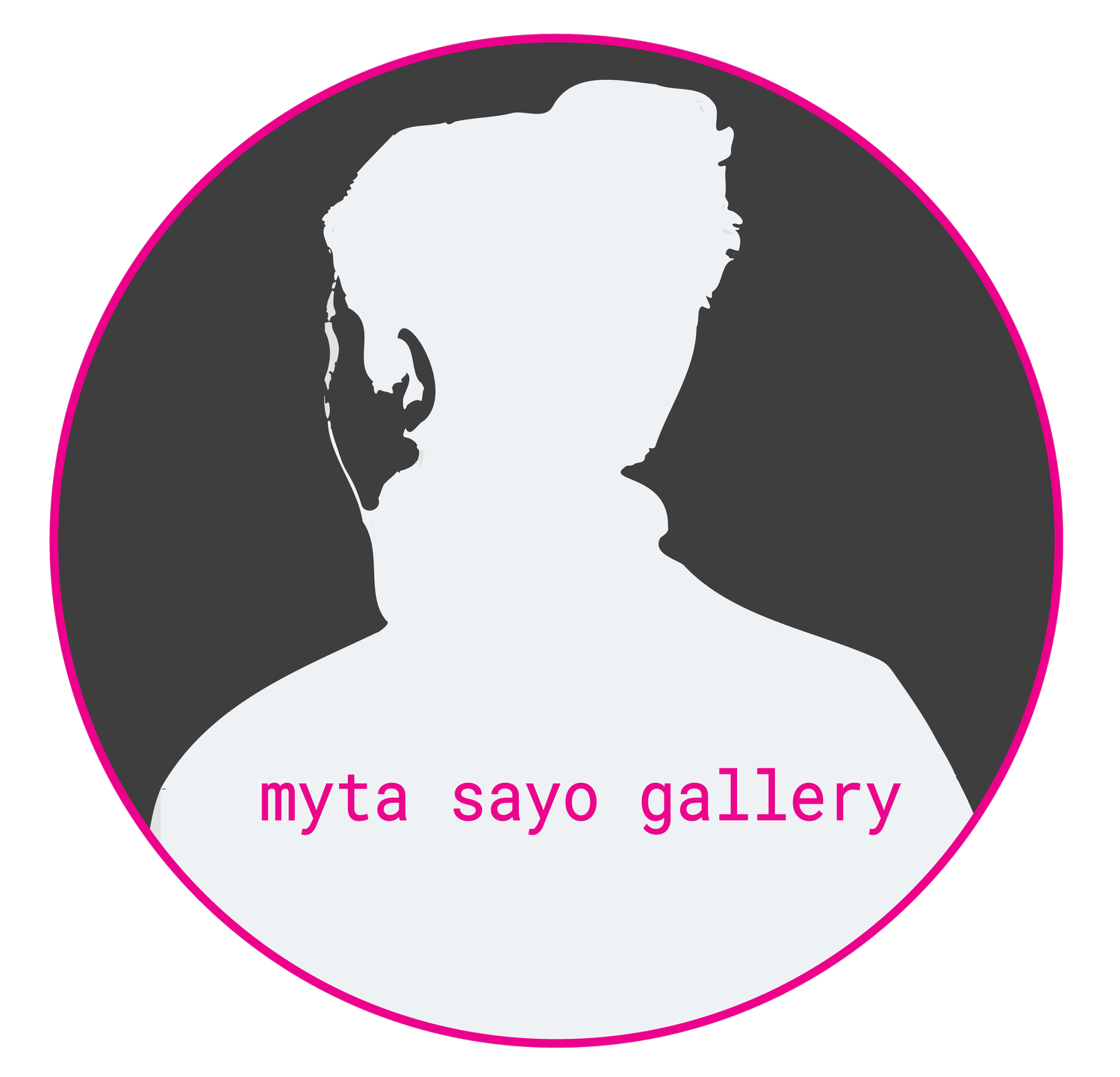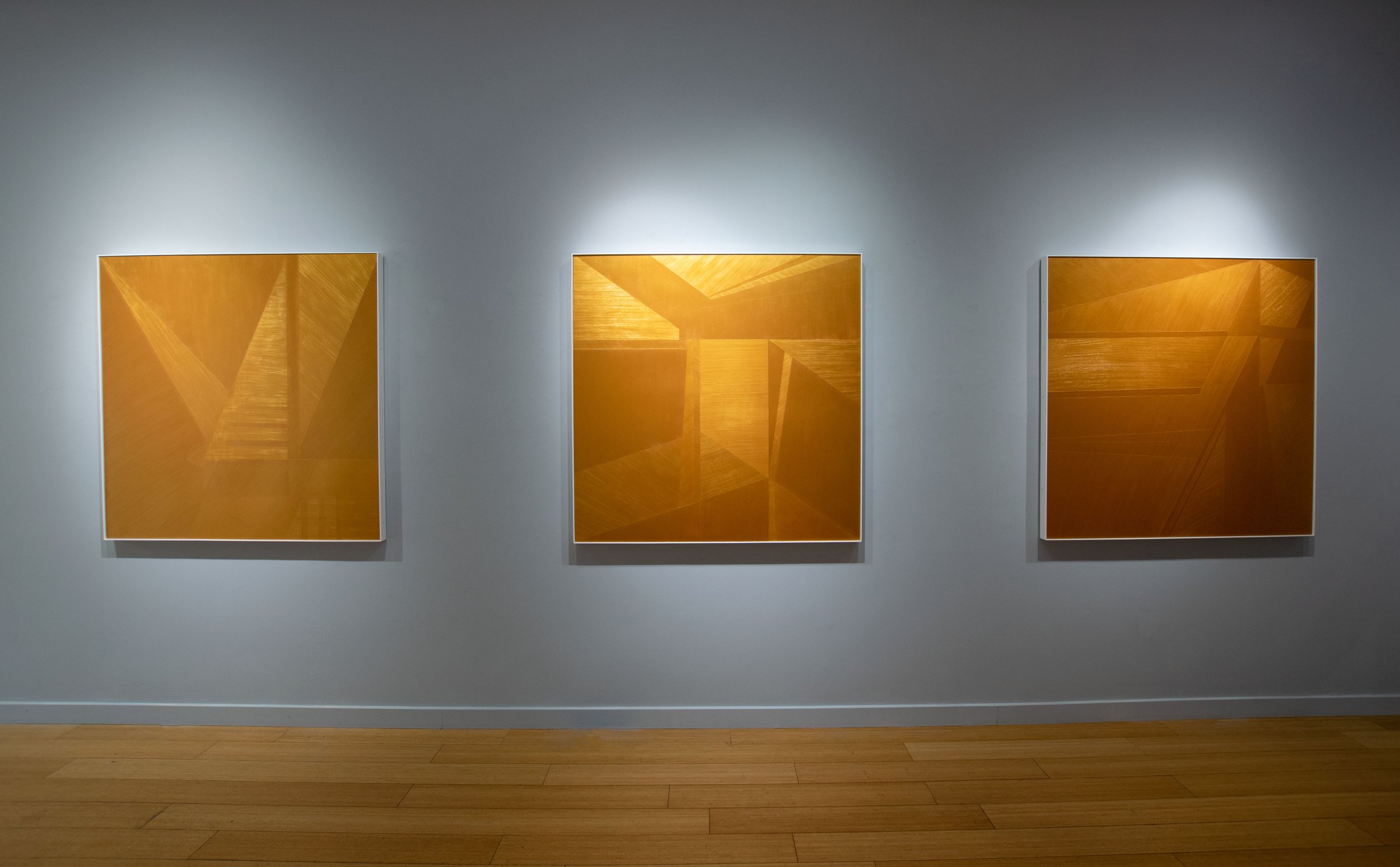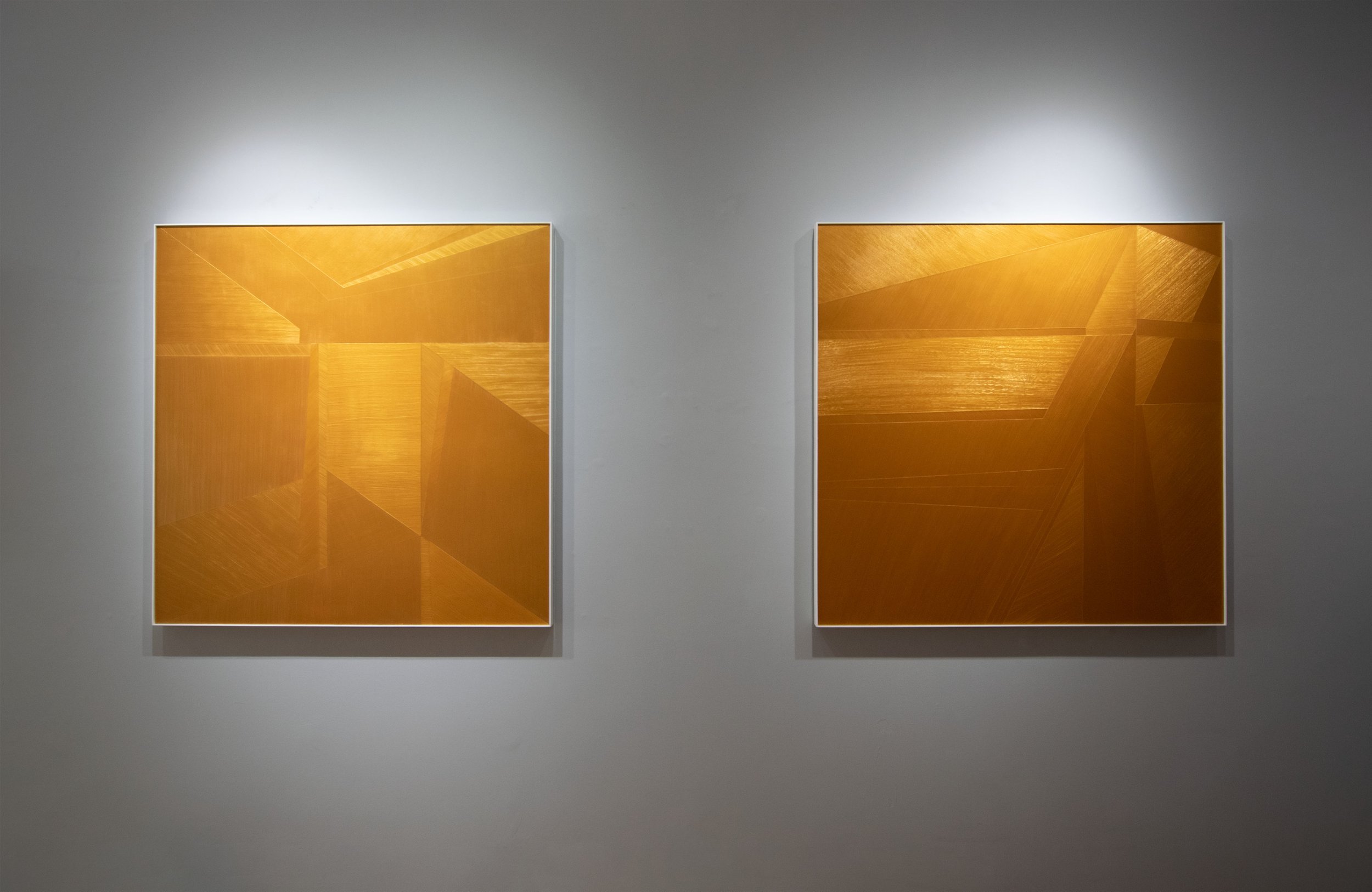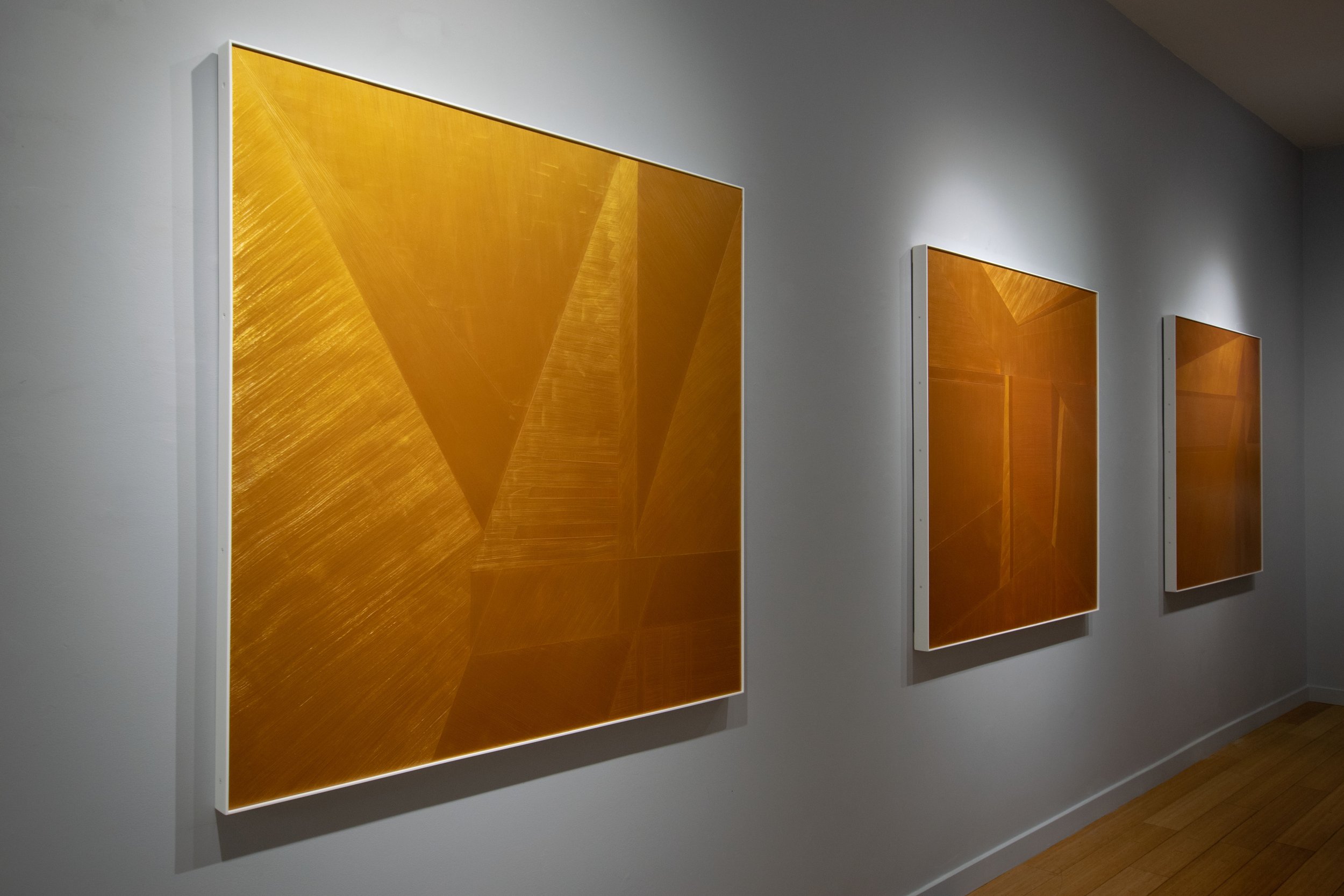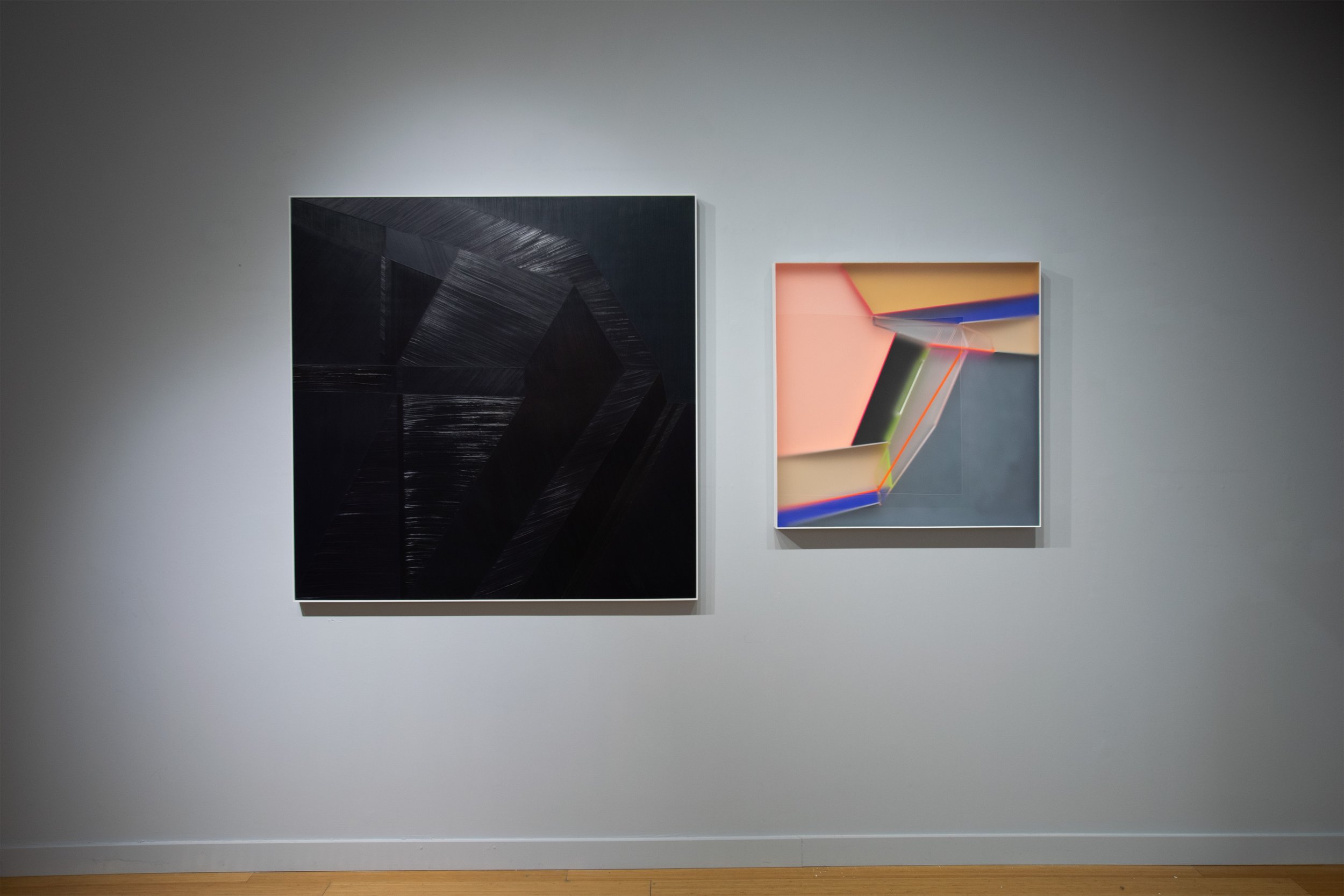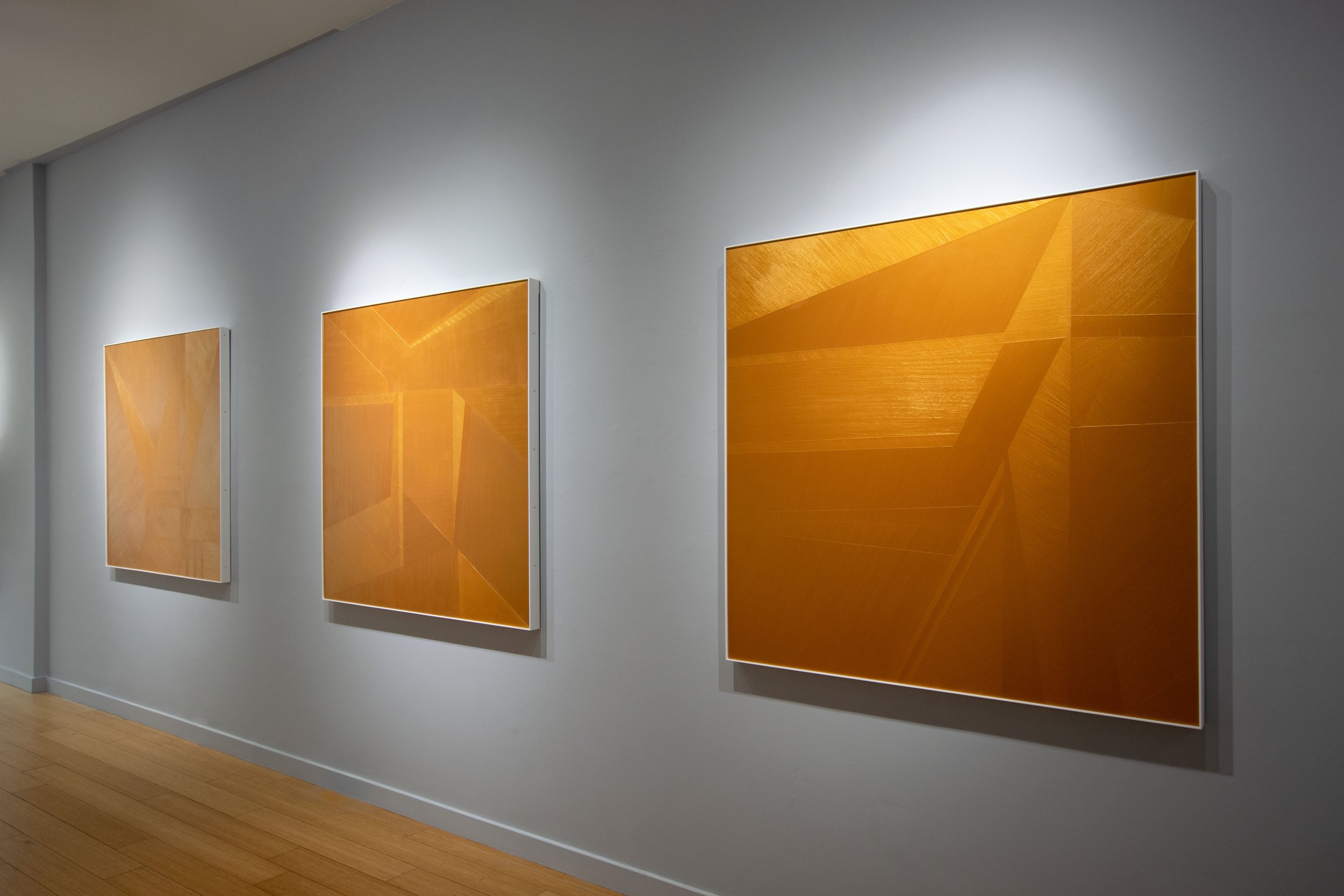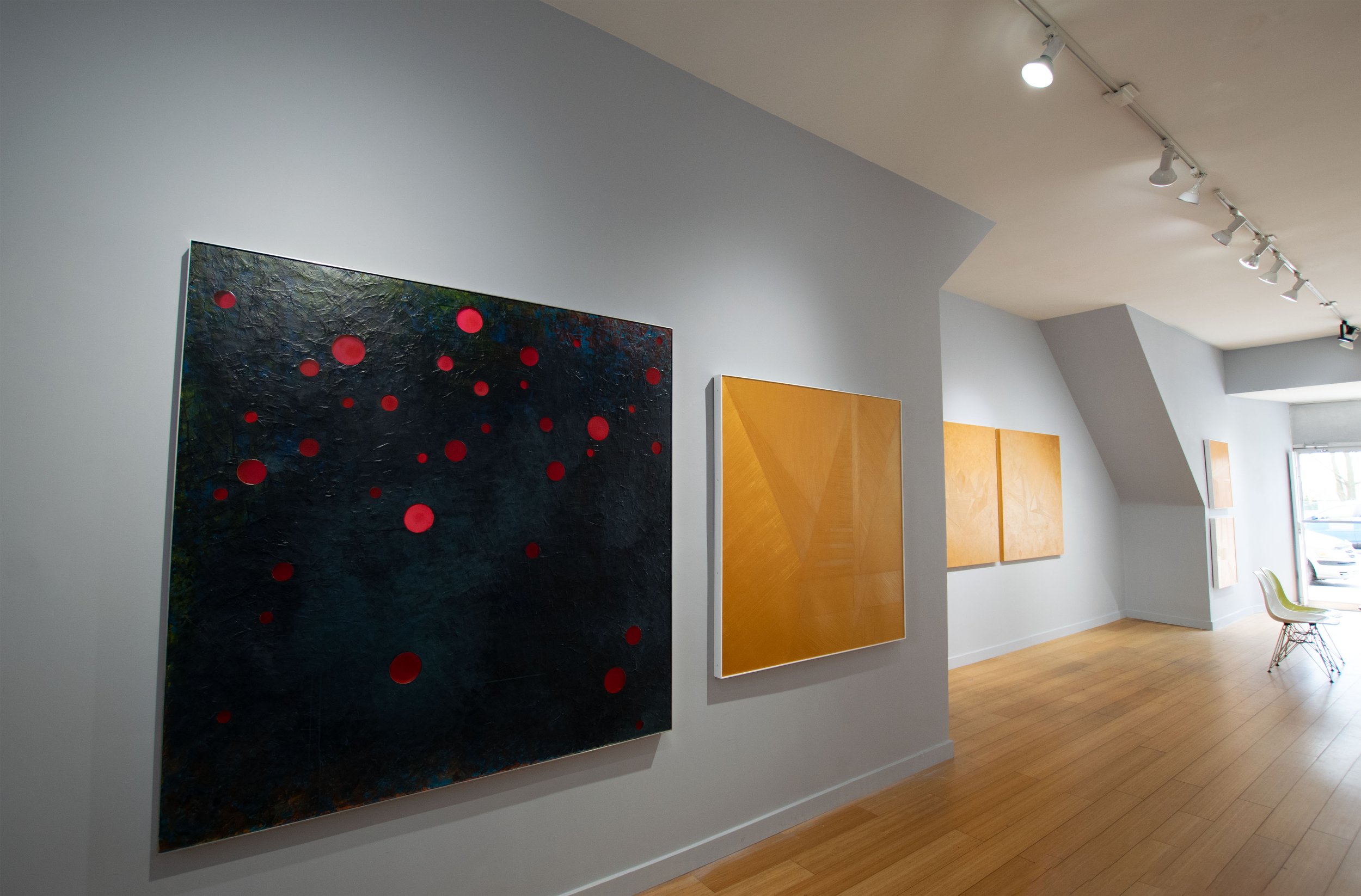ALL THAT GLISTERS ISN’T | Kal Mansur
May 15 - July 29, 2023
In Kal Mansur's new series of paintings he continues his exploration of changing perspectives. His idea that most of our differences would be viewed as similarities with a simple change of viewing angle has been reduced to the minimum number of elements. One colour, one brush. Angled brush strokes create a well defined border between areas in the paintings. These borders are only visible because the strokes, made with a wide house painting brush, end where strokes of a different angle begin.
Painted on baltic birch panels and framed in white acrylic, these paintings hold our attention by shimmering as the light of each day and viewing angles change.
“If you just change the way you view something you might completely alter your perception of it,” says Mansur.
Kal Mansur at Myta Sayo Gallery by Mikael Sandblom
Light, as much as colour and form, is central to Kal Mansur’s art. The glow of reflected colour, the diffusion of detail through translucent surfaces, as well as the play of shadows are all integral to the impact of his work.
In this new series, Mansur distills the interplay of light and surface to a succinct, minimal expression. The work in the exhibition All that Glitters Isn’t consists of glossy, gold-coloured panels. On first impression, the surfaces appear to be divided into geometric fields of varying shades of gold, some more yellow; some more brown. But move around and you will see the lighter and darker areas swap places. The colours shift depending on your point of view and the angle of light. Move in close and you’ll notice that the sharply defined geometry is textured with prominent brush marks. You’ll also notice that the paintings are completely monochrome. The appearance of different shades is solely due to the textured surface.
